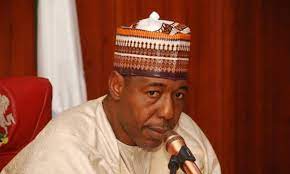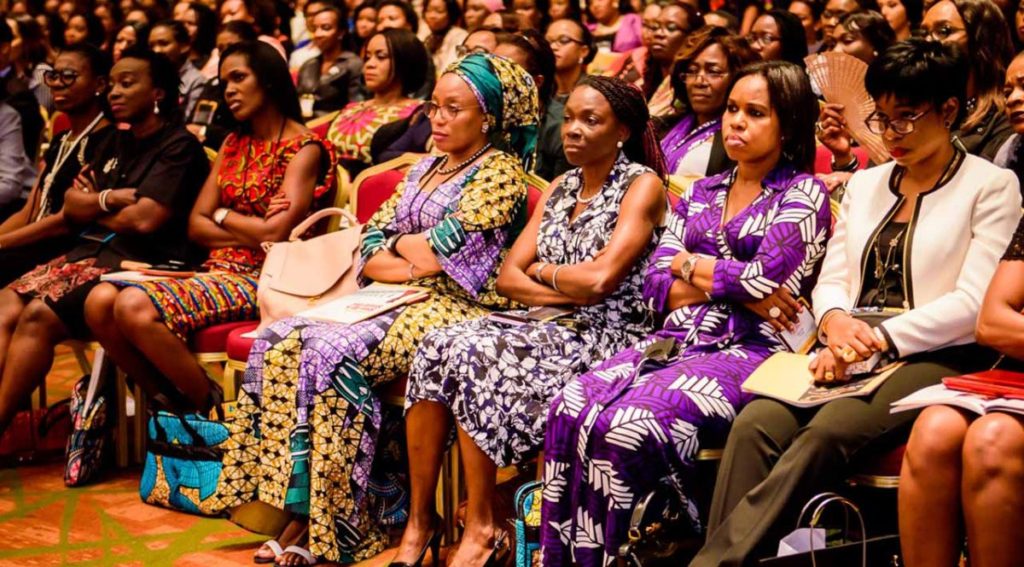Employment distribution in the Nigerian civil service through the recruitment process often involves searching for several candidates for employment, with the major purpose of stimulating the civil service structure of the government. The recruitment process provides the government and its agencies, especially the civil service, with several qualified and potential candidates within which they carry selection out to fill vacant positions. The recruitment and selection process are majorly concerned with filling, contacting, and examining potential employees to determine their suitability for the position of office.
To achieve equitable development in the society, gender equity in the civil service is essential. And for this to be realised, it is crucial that the structures of authority, decision making and implementation be modified to provide access to and equity for all segments of the society, including women.
In Nigeria, the 2018 National Demographic and Health Survey, NDHS, highlighted an unfair gender balance in employment, particularly in the federal civil service. Between 2010 and 2015, women accounted for only 38% of the federal civil service workforce. Yet, men dominated positions across the various ministries, departments, and agencies, MDAs.
In contrast, women represented only 34.7%, 35.1%, and 32.8% of the civil service in 2015, 2016, and 2017. And despite recording a 45.8% appreciation in female representation in 2015, the deficit continues in favour of the male.
In this investigation by Dargic Communication, civil servants from different Ministries, Departments and Agencies (MDAs) of government confided in our reporter that employment exercises usually take some period of years to fill, declared vacant or newly created positions and that most times, the recruitment tend to favour more men than women.
Three persons from three separate Federal Ministries, foreign affairs, environment and agriculture, who pleaded to remain anonymous, revealed that employment in the ministries are done on regular basis and mostly based on referrals from god-fathers, politicians, top government executives, traditional rulers and other influential individuals in the society. They also noted that in these referrals or recommendations, oftentimes when women are more favoured they are mostly employed as desk officers, secretaries, assistants and other lower cadres in the civil service. However, this category of women employees, even after many years of service, find it difficult to gain promotion despite the low representation of the female gender in the nation’s federal civil service. Overall, despite constituting almost half of Nigeria’s population, the civil service employs much fewer women than men.
According to Fatima Asabe (not real name), a civil servant who spoke with our reporter said, “women make up less than 40% of the entire civil service staff and less than 30% of those employed for middle to top positions. Majority of the women occupy the low cadre of employment. I think this is intentional so as to keep women at the bottom. It is all part of the inequality and marginalisation we have in this country.”
“Another thing is that most vacancies are given to top politicians as slots and these politicians give their slots to men and not women because they believe the men will bring political value to them during elections and they will be more loyal to them. Also, the men are more difficult to buy over during election unlike women so they prefer to use employment slots to settle or capture men for political loyalty. So eventually we end up having more men employed into the civil service,” she added.
Fatima’s claim aligns with the issue raised by the executive governor of Borno State sometime ago.

The Borno State Governor, Babagana Zulum, had in the past raised concern that the recruitment into the Security Agencies have been politicised, and that the governors, ministers and other top government functionaries have recruitment slots of job seekers who are not interviewed whether they are qualified or not.
In an interview with Dargic Communication, Mustapha, a staff of one of the government agencies stated that many times most ministries and government agencies do not make their vacancies and employments public, they just fill the vacancies by internal arrangement among the top officials and politicians. He said, “Sometimes we will just come and see new faces and new employees in our departments without any prior known publication of recruitment exercise. And of course, most of the beneficiaries are males. I can tell you that if they employ 10 people, maybe you will see two females among them.”
When asked if it was because the males were more qualified than the women, he said, “You see, in our present system in this country, employment by merit has been generally eroded so let’s not even talk about that one. Employment these days is mostly by who you know or how much you are willing to pay or offer. The corruption in the process is too much. Okay, what about promotion? If you say employment by merit, what about promotion after the employment? Some people have written promotion exams and met all the requirements for promotion but their names were not included in the list. And if you check, it is women that suffer it most.”
Further findings by this investigation revealed that the dominance of male in the federal civil service and the FCT has been further aggravated by cultural and religious factors that place men as breadwinners and therefore give them first place consideration for employments especially for some states and geo-political regions of the country.
For instance, a 2008-2012 employment data of the Federal Character Commission sighted by the reporter showed that states such as Katsina, Zamfara, Yobe, Sokoto and Kano amongst others, have more of males than females in the Federal Civil Service. Females in this part of the country are generally marginalised. Furthermore, the data showed that as of 2008, 723 Nigerians were employees of the Federal Civil Service. Out of this number, 498 representing 68.9% of the employees were males, while the remaining 225 representing 31.1% were females.
In 2009, there were 723 employees in the Federal Civil Service (Table 3). Out of this number, 493 representing 68.2% of the employees were males, while the remaining 228 representing 31.8% were females. In 2010, employees in the Federal Civil Service increased by 18% from 723 employees in 2008 and 2009 to 853 employees out of which 566 representing 66.4% of the employees were males, while the remaining 287 representing 33.6% were females.
In 2011, out of the total number of employees in the Federal Civil Service, 64.7% were males, while 35.3% were females. This signified an increase in the percentage of female employees and a decrease in the percentage of male employees.
In 2012 there was a substantial increase of about 22.8% in the number of employees in the Federal Civil Service as a culmination of increase in the number of male and female employees. The indicated that that year 67.3% of the employees were males, while 32.7% were females.
The above data shows the dominance of males in the Federal Civil Service which has remained perpetually so.
All the institutions of government responsible for recruitment show a sense of equality but a deeper look at them reveals a situation of interrelated practices, actions, and processes of disparity across the board. The recruitment and selection process adopted by the Federal Civil Service Commission of Nigeria, which handles recruitment into the civil service of the country, is made up of significant reasons that lead to a clear disparity and lopsidedness in the employment distribution in the Nigerian civil service.
The selection process is occasioned by complex procedures, absence of a reliable database, and employment strategy. The recruitment and selection are made more complex when employment is carried out without advertisement, thereby creating room for secret recruitment which invariably leads to disparity and lopsidedness in the civil service employment.
Most times these secret recruitments are occasioned with job racketeering which has over the years become a norm in the civil service. There have been several reports of people paying for employment as well as for promotion in federal and state agencies including the paramilitary. In 2021 a Sokoto State High Court sentenced two officials of the NSCDC, Mainasara Malami and Emmanuel Salihu to 14 years for N2.7m employment scam.
In most cases men stand at an advantage in paying for job due to their stronger financial capacity as well as cultural norms which make parents more committed to the employment and economic growth of their male children than the female. This has further promoted lopsidedness in the employment within the Nigeria civil service. In 2020, the United Nations Office on Drugs and Crime (UNODC), released a report that said 32% of Nigerians gave bribes to enable them secure employment into the public service in 2019.
Employment and Promotion in any organisation are critical human resource functions. MDAs are required to undertake Promotion Exercise at least once every year. In the Public Service, Promotion and Appointment are subject to availability of vacancies. Therefore, the precursor to undertake either of these functions is to ascertain vacancy position for the year in view.
The process to generate vacant positions requires an approved Manpower Plan with budgetary provision for the year. The objective of Manpower Plan is to forecast staffing level needs and ensure the entire organisational structure is adequately staffed, and commensurate personnel cost is properly budgeted for. Simply put, it is the process of determining the right number, quality and cadre of personnel required to accomplish stated objectives in an organisation within a specified time usually one year and making provision within the same period for their emolument.
Until all institutions of government responsible for recruitment and promotion of staff begin to obey the civil service rules and procedures as well as uphold gender accountability in the process, there will continue to be gender imbalance and lopsidedness in the civil service.
This investigation is for the GENDER, THE AGENDA project for Gender Strategy Advancement International (GSAI) supported by the Wole Soyinka Center for Investigative Journalism (WSCIJ), and the MacArthur Foundation.



